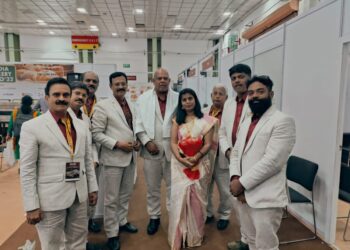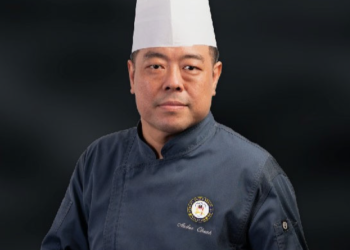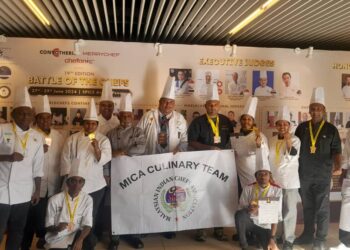-Vishakha Goswami (cbedit@imaws.org)
Replacing the non-biodegradable mugs with earthy Kulhads to serve tea is what makes Chai Sutta Bar(CSB) different in the market. With a motive of ‘Less plastic and more organic’ and a sustainable and eco-friendly business idea, Chai Sutta Bar was launched in 2016 by Anubhav Dubey in Indore – a city known as the education hub of Madhya Pradesh.
This brand is a fusion of Indian and western traditions because they serve tea and coffee in a Kulhad on the bar table. Starting from one stall, Anubhav Dubey and Anand Nayak have taken their venture in about more than 140 cities including offshore countries.
Tea is the most consumed beverage across the world and in India, the consumption volume of tea was approximately 1.1 billion kilograms during the financial year 2021, according to a report by Statista Research Department. “India is a vast and a competitive market, to run in a business of cafe you have to keep two things in mind. The first is the affordability and the second one is hygiene”, says Anubhav Dubey in conversation with ‘Chef Bharath’.
“The cost factor is really important because what we are serving is the most consumed beverage and is everyday need it is consumed by masses and not a particular section of the society, hence we have built a product which is affordable by all and we are trying to make it available by extending our presence in every corner of the country”, he added.
Innovation and Technology Adoption:
Speaking about the learnings from the pandemic and shaping of the QSR model in the hospitality sector Anubhav said, “We have faced downstream in business and it did hit due to lockdown restrictions but our business bounced back with our effort and dedication. We have seen a transformation in the consumption habits of people post-pandemic. In general, India has boasted a fast-growing economy and country so do our people too. Now, people prefer takeaway and quick food on their table. Consumers are looking out for eatables that are handy and easily available. QSR is going to grow in our country.”
In the post-pandemic era, the food and beverage industry will invest more into technology that will help the workforce to maximise time and efficiency and make the work more doable and enjoyable. “With changing time and consumer behaviour we have partnered with food delivery aggregators. We are using various software, AI bot systems to track the inventory”, says Anubhav.

Supply Chain & Raw Materials:
Chai Sutta Bar has a centralised supply chain and their master kitchen in Indore. They supply all the raw materials and ingredients to all their outlets except the perishable things like milk and vegetables which have to be procured from the local market.
Speaking about the authenticity of raw material and maintaining the flavour and taste of CSB’s chai across all the outlets, Anubhav said, “As we are not importing any raw materials from anywhere, we are manufacturing in-house so that the uniqueness of the taste and its authenticity should not be compromised. We take care of the packaging in such way that shelf life of the ingredients or raw products increased and can be utilized in ample of time frame by our outlets”

Kullads and culture is its’ USP
Speaking about the culture and theme of the brand, Anubhav says, “Smoking is injurious to health and therefore we do not promote anything that is unhealthy and in all of our outlets we have strictly prohibited smoking within the arena.”
‘Kullad’ , a soil cup famous in certain part of India is picking up fastly. Chai Sutta Bar is the biggest buyer in terms of quantity. The company claimed to be the largest consumer of Kulhad in the world as they use about 3-5 lacs kulhads in a day. “When I first visited an outskirt village and saw the condition of potters and their community, they had difficulties to get bare minimum wages to survive for a day. That day I thought of doing something to empower these people, so we decided to indirectly serve this pottery community.”
“Everyone can run a business but a purpose-driven business is something we are trying to make with Chai Sutta Bar, most of our employees who are working in either various CSB’s outlets are either orphans or physically challenged or who are below the poverty line, we give them opportunity to thrive because they deserve it and they should get a chance to build a life”, he added.
Road Ahead and Global Expansion Plans:
After positioning Chai Sutta Bar in the Indian market, the co-founders are trying to build it a global brand by extending their presence in the Middle East market. Currently, they have two outlets operating in Dubai and Oman. Anubhav says, “I am very optimistic about our growth plans, keeping the sustainability in mind and eco-friendly café culture and I want to take Chai Sutta Bar not just to every city of the country but I want to take this brand in every country. We are planning to open outlets in the US, UK and Canada along with strengthening its presence within the country.”








